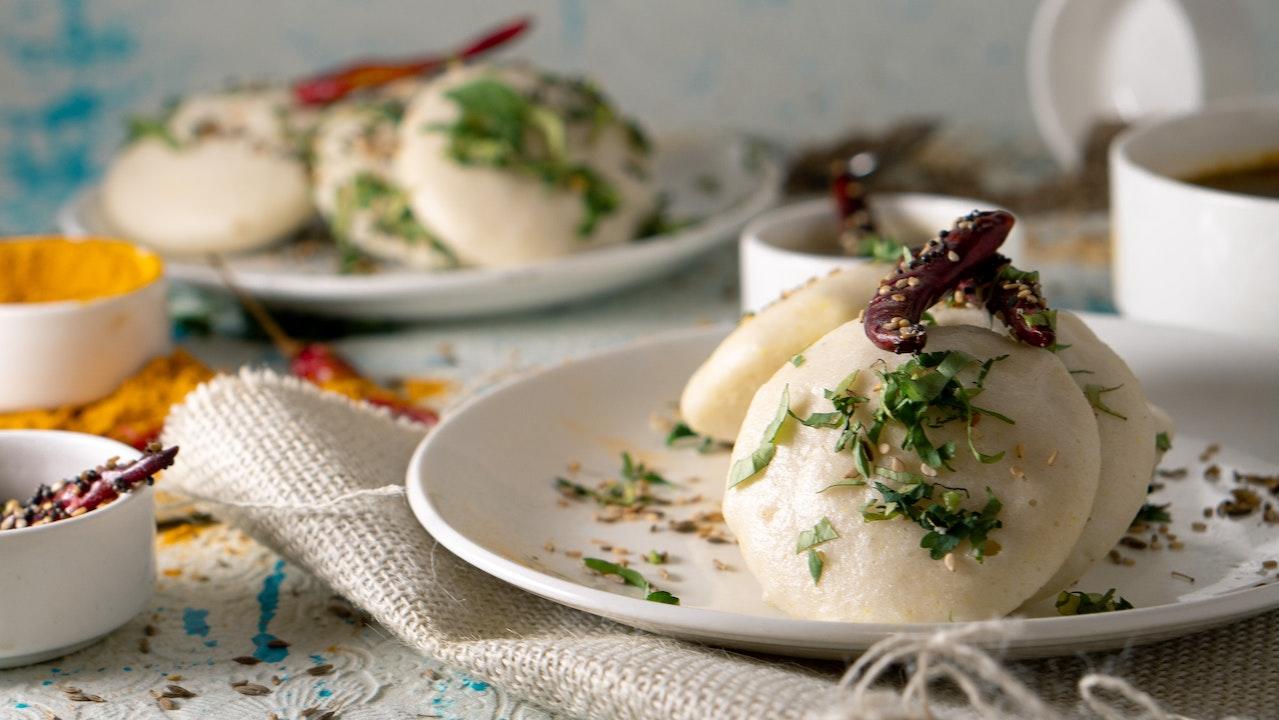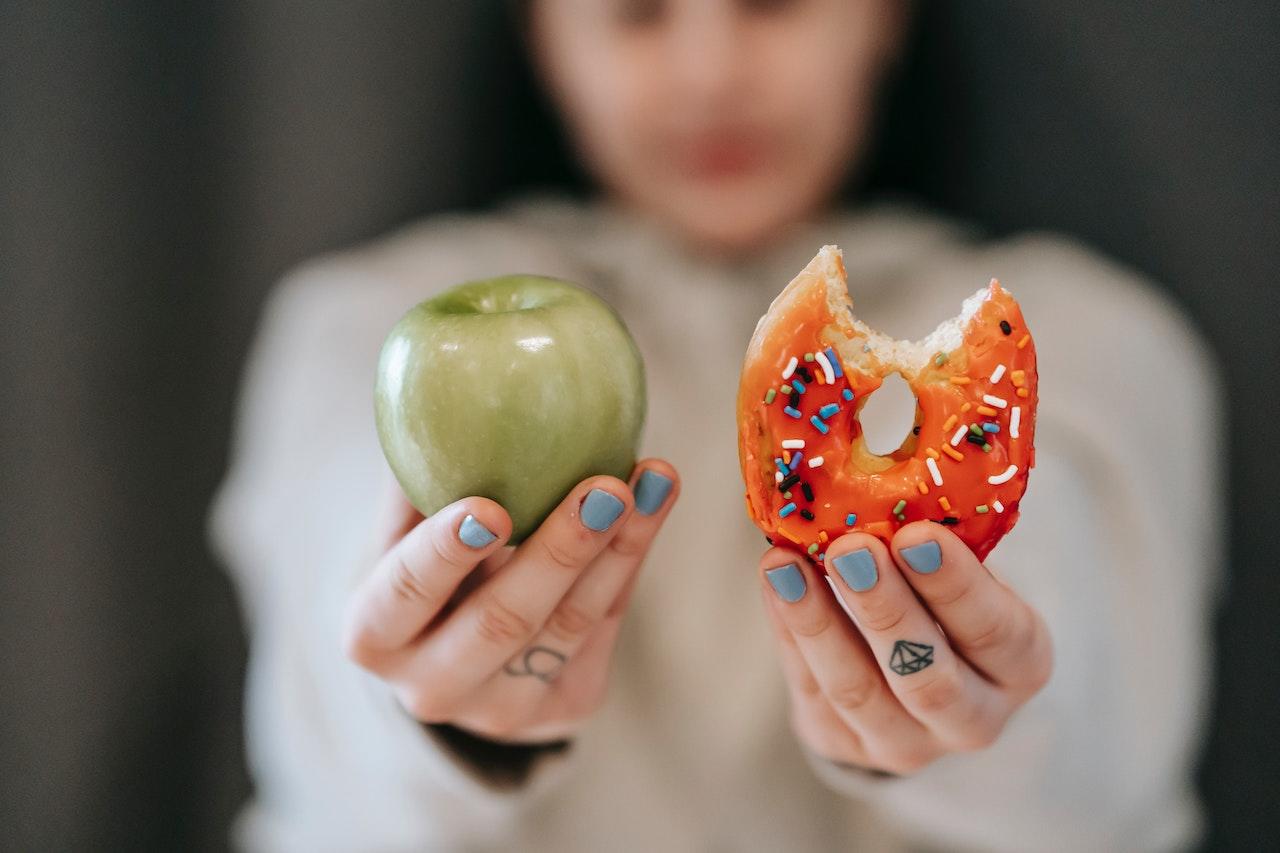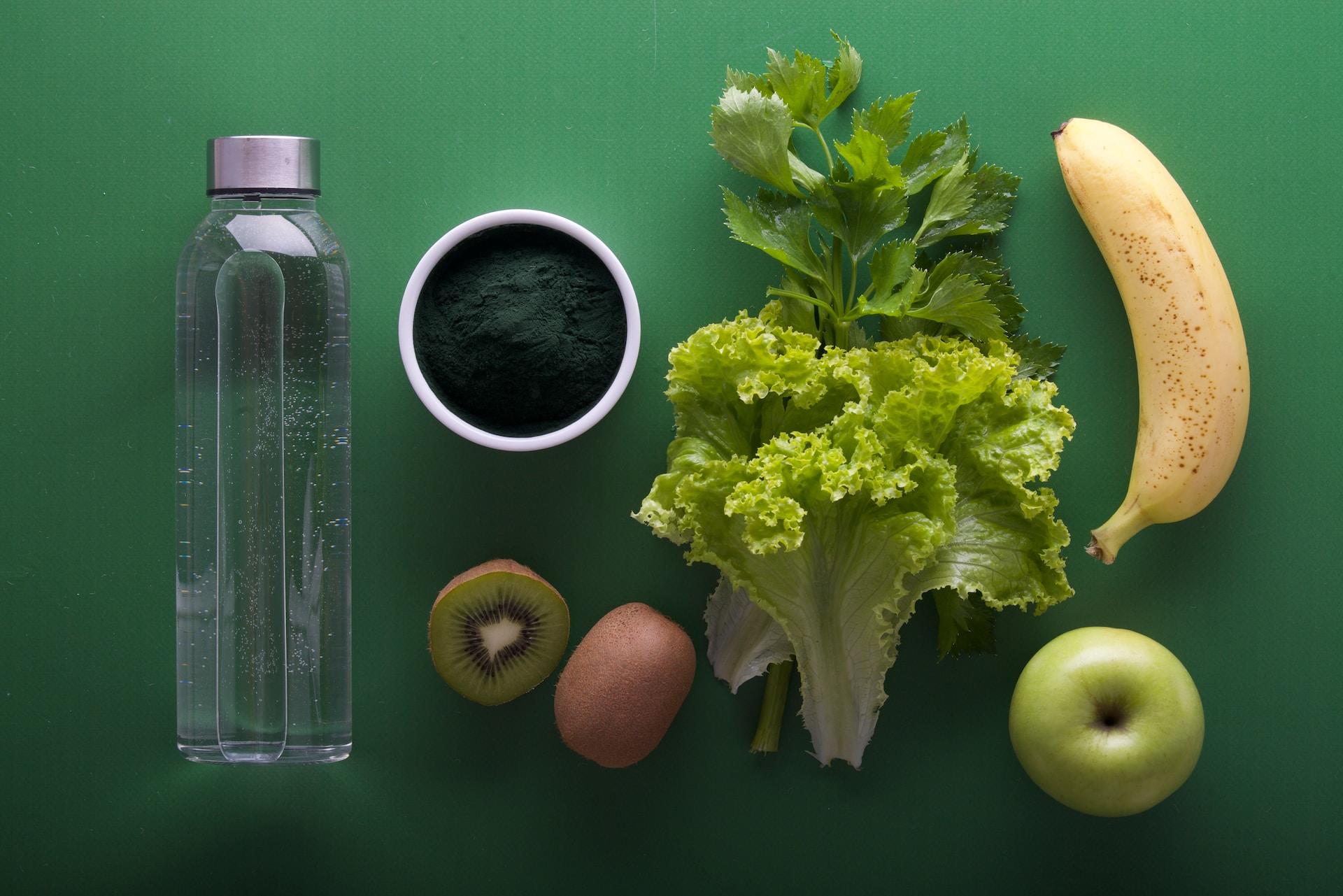Your digestive system is responsible for extracting nutrition from the food you eat, and if it isn't working properly, you can experience a range of health problems. The digestive system is a delicate balance of chemicals and processes that need to work together for your body to digest food properly.
It is vital for you to maintain a healthy digestive system to live a happy, active life. If your digestive system isn't functioning correctly, you may experience problems like constipation, diarrhea, or bloating.
Fortunately, you can help maintain a good digestive system. In this blog post, we'll discuss some tips for keeping your gut in good shape with food and other healthy habits.

The Importance of Healthy Eating
Why is it important to keep your digestive system healthy?
The gut has been described by some scientists as the “second brain.” Using chemical signals, the gut can help clue the brain into problems in the body. A poorly functioning gut may cause you to miss symptoms of problems in your body.
We humans also have a symbiotic relationship with healthy bacteria that live in our gut. They help regulate our bodies, aid in the absorption of nutrients and the expulsion of toxins and generally contribute to overall health.
Avoid Gut Issues & Prevent Diseases
Eating a diet of foods that don’t support gut health can lead to myriad health issues. Many of them are painful and disrupt a person’s ability to live a comfortable life.
While not every gut issue can be completely avoided in every person due to things like genetics and the environment, we can all try our best to continue to feel our best by taking good care of our digestive system.
An unhealthy gut directly contributes to a variety of diseases (which we will talk about in another section) all over the body, not just in the digestive system.
Good nutrition is the best defense we have against preventing disease and is one of the best tools to help fight and recover from any illnesses that do occur.
Whole Body Health
There are many other reasons people should eat healthily. For example, it supports weight control and good cardiovascular health. Eating a well-balanced diet also helps keep your immune system strong.
Think about it: everything in your body, from your hair to your liver, is made up exclusively of the nutrients in the foods you consume. Your diet provides all the necessary materials for making new cells, keeping your brain healthy, fighting off infections, preventing cancer, and so many other things. Without food, you can’t survive!
That’s why it’s important to eat well; to ensure that your body has all the right building materials to maintain health. Low-quality food can lead to low-quality building materials, which can lead to a body full of weak spots.
Learn more about how to support your well-being through diet with an online dietitian from Superprof.

What Nutrients Do You Need For a Healthy Gut?
How can you best support your digestive system through food?
These are the necessary vitamins, minerals, and nutrients you need to keep your gut healthy and happy.
Fiber
Not eating enough fiber can lead to diseases like diverticulitis, IBS, hemorrhoids, leaky gut, increased risk of rectal and bowel cancer, constipation, obesity, and diabetes.
This is because fiber is crucial for keeping everything flowing smoothly through the digestive tract. Without it, waste can pile up in the colon and intestines, where it decomposes inside the body and leads to these diseases. The bowel can even become impacted by stuck waste which can lead to things like toxic megacolon and feculent vomiting.
Constipation can also be a symptom of different diseases, so if you have unexplained constipation, it’s important to see a doctor.
Vitamin D
A vitamin D deficiency may contribute to the development of Crohn’s Disease, a painful bowel condition that can incapacitate sufferers and lead to the removal of parts of the bowels.
Vitamin D helps keep the lining of the intestines strong, helps promote a healthy amount of good gut bacteria, aids in the absorption of nutrients during digestion, and prevents certain diseases from occurring.
L-glutamine
This specific amino acid is the best at supporting the health of various tissues in the body, including the inner lining of the intestines. Weak intestinal lining can cause a disease known as “leaky gut,” where microscopic tears in the intestine allow some digestive contents to permeate into the abdomen.
As you can imagine, we do not want this to happen!
L-glutamine helps keep the lining strong and impermeable.
Polyphenols
Polyphenols are a compound that naturally occurs in plants. (This means it’s necessary to eat plants regularly!)
They appear to help promote good gut bacteria growth while suppressing bad bacterial growth (like C. difficile, E. Coli, and Salmonella). At the same time, it can help probiotics to work even better.
Finally, it can help improve symptoms of peptic ulcer disease and inflammatory bowel disease.
Omega-3 Fatty Acids
Omega-3s are anti-inflammatory, so they help reduce irritation in the digestive system that could otherwise potentially lead to injury. They are another nutrient that contributes to a thick, healthy, impermeable intestinal lining.
These fatty acids also help to improve healthy bacterial growth and diversity.
Magnesium
This mineral supports muscle health. The digestive system is made up of a series of muscular organs. Therefore, magnesium is essential for digestive health!
It helps ensure that the stomach and intestines move properly, ensuring smooth digestion. It also helps regulate the strength and amount of stomach acid, which reduces the risk of acid reflux.
Vitamin C, Selenium, Zinc, Iron
These vitamins and minerals all contribute to the integrity of the intestinal lining.
Pre and Probiotics, and Vitamin B12
Foods that contain live bacterial cultures and nutrients to support their growth are vital for good gut health. The good bacteria located in the gut of humans help to break down food, assist in nutrient absorption, and get rid of waste. They may even play a role in keeping the immune system healthy!
Even though it might seem like a bad thing to be full of bacteria, it’s actually a common occurrence in nature and we need them in order to survive. In fact, if you had no gut bacteria, you would be suffering from any number of illnesses including malnutrition, IBS, IBD, and even rheumatoid arthritis and autoimmune problems.
Bad bacteria will also take the opportunity to overrun your digestive system if there aren’t enough good bacteria present.
Build a healthy meal plan with a dietician in Mumbai or your city here on Superprof.


Superfoods for Digestive Health
Conveniently, many of the same foods that contribute to health in other parts of the body also contribute to gut health, meaning you’re always getting a 2-for-1 deal when you eat these vitamins and minerals!
These are the best foods for a healthy gut.
Fermented Foods
Fermentation allows beneficial bacteria to prosper before you even eat the food, making it a great probiotic. Kimchi, curd or dahi, miso, tempeh, natto, pickle, sauerkraut, kefir, kombucha, sol kadhi, hawaijar, kanji, idli and dosa, enduri pitha, khorisa, dhokla are perfect for increasing the amount and quality of your beneficial gut flora.
Vegetables
Bok choy: It is a powerhouse of nutrition; this vegetable offers a high concentration of vitamin A and essential minerals such as magnesium, potassium, and manganese. It is also a good source of dietary fiber.
Carrots: These produce optimal hydrochloric acid production in the stomach for protein digestion. They also offer soluble fiber to protect against colon cancer.
Other vegetables that are perfect for the digestive system include Jerusalem artichokes aka sunchokes, leeks, asparagus, spinach, and broccoli.
Onions & Garlic
These aromatics have been shown to exhibit anti-inflammatory and pain-relieving properties and can help reduce potential risk factors associated with heart disease, high cholesterol levels, and high blood pressure.
Fruits
Fruits tend to be rich in two types of fiber: soluble and insoluble. You need both in order to maintain gut health. They also have the vitamins and minerals required to maintain gut health.
Some of the best fruits are bananas, berries, watermelons, and pears.
Beans and Legumes
Beans are excellent sources of fiber and some vitamins and minerals. Soya beans in particular are good sources of polyphenols and other vitamins.
Spices and Herbs
Ginger: Ginger is one of our favorite superfoods for a healthy digestive tract. It's been shown to have anti-inflammatory properties, improve glucose levels, and can be used as a natural treatment for nausea or morning sickness in pregnant women.
Turmeric: In addition to being a remedy for inflammation, it also contains compounds that have been found to inhibit the growth of cancer cells (specifically colon cancer cells). Turmeric contains curcuminoids, which are chemicals that give turmeric its yellow color. They're responsible for providing many of its health benefits, including the prevention of constipation.
Hing (Asafoetida): Hing is full of fiber and helps to soothe acidity and other digestive issues.
Sweet Treats
These unconventional health foods are a great source of polyphenols.
Cacao: Cacao beans have been found to not only enhance your mood but can aid in digesting fats quickly and efficiently because theobromine released increases digestive enzymes produced in the stomach's mucous membrane. And unlike chocolate, cacao has no added sugar, so it doesn't have any adverse effects.
Red wine, black tea, and coffee are other unlikely sources of polyphenols.
Luckily, most foods are compatible with a healthy gut!
You can work with a nutritionist to develop meal plans and recipes that work best for your specific dietary needs.

Foods to Avoid
When you don’t eat a diet that facilitates a healthy gut, you will eventually feel the pain that comes along with a struggling digestive system. These foods can be tolerable in moderation, but too much of them (especially instead of other, healthier foods) can lead to diseases.
- Artificial sweeteners
- Too much sugar, salt, and fat/oil
- Red meat
- Heavily processed foods
- Alcohol
Support Your Digestive System
While food is the number one way to ensure good gut health, lifestyle is the next most important factor. You’ll be feeling better for years to come when you incorporate these habits into your daily routine!
Drink Water
It goes without saying that water is important for the whole body! If you are dehydrated, your digestive system cannot function properly which can lead to constipation and abdominal discomfort.
Chew Your Food
When you make sure to adequately chew your food well before swallowing it, you help your digestive system be more efficient. You also help to ensure that more nutrients will be absorbed from your food.
Eat Mindfully
Eating too fast or too much puts stress on your digestion and makes it less effective.
It’s better to eat smaller meals at a leisurely pace. If possible, try to split your 3 daily meals into 4 or 5 meals, where each meal is smaller than usual so you don’t overeat over the course of a day. These smaller meals don’t overburden your system.
Exercise or Move Daily
Taking a walk or doing a workout is a great way to manually manipulate the organs in the body. Movement helps make sure the organs are doing their job, and it can help them be more efficient. Exercise also increases blood flow long after you throw in the towel, which means your digestive system will have better access to oxygen from the bloodstream.
Don’t Eat Too Close To Bedtime
Try not to eat at least 2 to 4 hours before bedtime. When you go to bed full, your body has to reconcile that it wants to both rest and finish processing your meal. Both things can’t be done at once! This means your sleep quality goes down, and your digestive process isn’t optimal either.
Only drink a little water at this time, if you’re thirsty.
Once you understand the importance of clean eating for gut health, you’ll naturally be able to make better food and lifestyle choices. The alternative is a few seconds of pleasure (yummy, unhealthy food) for a potentially huge, painful, life-disrupting problem down the line.
You can indulge every once in a while in snacks and junk, and you don’t have to become a gym rat. Moderation is key! Simply make healthy choices most of the time, and you should be all set to stay on track for a long, healthy, comfortable life!
Find a nutritionist in Bangalore and elsewhere when you search on Superprof.
Summarise with AI:
















